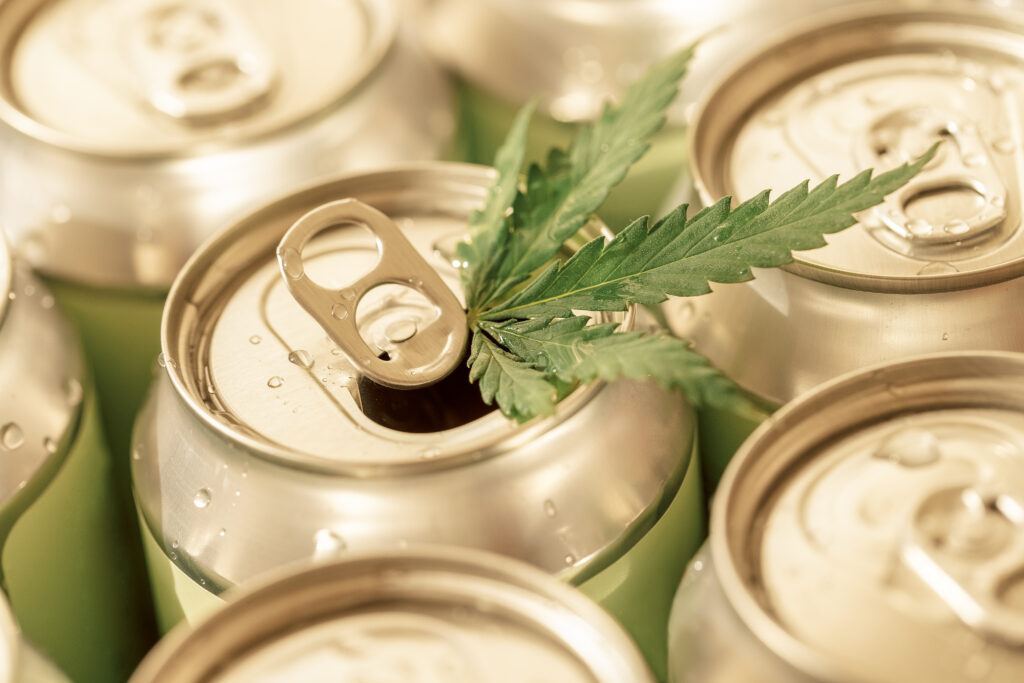The market for hemp beverages has been growing rapidly in recent years. They offer a range of health benefits and are a refreshing alternative to traditional drinks.
The passing of the 2018 Farm Bill, which legalized hemp production, boosted the market, allowing companies to explore hemp as a primary ingredient. This legislation removed hemp from the list of controlled substances, allowing for its cultivation and commercialization across the US. Since then, the market has seen a steady influx of new products, including hemp-infused teas, sparkling waters and protein shakes.
Leading Companies in the Burgeoning Hemp Beverage Market
Hemp beverages are made from hemp seed oil or hemp extracts, providing nutritional benefits without the psychoactive effects of THC. This market has seen significant growth due to rising consumer interest in health and wellness, coupled with increasing awareness of hemp’s nutritional properties. Hemp seeds are rich in essential fatty acids, vitamins and proteins, making them an attractive beverage ingredient.
Several companies have emerged as key players in the hemp beverage industry, each offering unique products to cater to diverse consumer preferences. KELIA is one such company, known for its range of hemp-infused sparkling waters. KELIA focuses on providing refreshing, low-calorie beverages that incorporate the health benefits of hemp, targeting consumers who seek both taste and wellness in their drinks.
Another notable company is Recess, which offers a line of sparkling waters infused with hemp extract and adaptogens. Recess aims to promote relaxation and stress relief, appealing to a growing demographic interested in mental well-being and functional beverages. Its branding and marketing strategies have resonated well with younger, health-conscious consumers.
Related: Decaf Coffee Ban? The Brewing Controversy
US Regulations Around Hemp
The regulatory landscape for hemp in the US is complex and continually evolving. The 2018 Farm Bill was a pivotal moment for the industry, as it legalized the production and sale of hemp, defined as cannabis with less than 0.3 percent THC. This distinction allowed for the legal cultivation and commercial use of hemp across various industries, including beverages.
However, the legalization of hemp did not mean a free-for-all. The US Food and Drug Administration (FDA) plays a crucial role in regulating hemp products, particularly those intended for consumption. The FDA’s stance has been cautious, focusing on ensuring that hemp beverages and other products are safe for consumers. Companies must navigate stringent guidelines regarding labeling, health claims and quality control.
For instance, the FDA prohibits companies from making unverified health claims about their hemp beverages. Any claims about the benefits of hemp must be backed by scientific evidence and companies must avoid suggesting their products can treat or cure diseases. Additionally, manufacturers must adhere to good manufacturing practices (GMP) to ensure the safety and consistency of their products.
State regulations also play a significant role in the hemp beverage market. While the 2018 Farm Bill legalized hemp at the federal level, individual states have their own rules and regulations. Some states have embraced hemp production and commercialization, creating a supportive environment for businesses. Others have imposed stricter regulations, limiting the types of hemp products that can be sold.
Moreover, the transportation of hemp products across state lines can be challenging. Although federal law allows for the interstate commerce of hemp, discrepancies in state regulations can create hurdles for businesses. Companies must be vigilant in understanding and complying with both federal and state laws to avoid legal issues.
The hemp beverage market has grown substantially since its inception in the 2010s, driven by consumer demand for health and wellness products. Companies like KELIA and Recess have capitalized on this trend, offering a variety of innovative products. But navigating the complex regulatory landscape remains a significant challenge.
The 2018 Farm Bill opened the door for hemp beverages, but companies must adhere to FDA guidelines and state and federal regulations to succeed. As the market continues to evolve, ongoing regulatory developments will shape the future of hemp beverages in the US.
If you want your company to be featured on Xtalks.com, please email [email protected].












Join or login to leave a comment
JOIN LOGIN